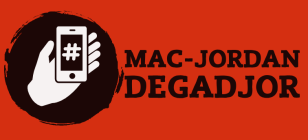The internet disruption has affected not only Kenya but also neighbouring countries, including Uganda and Burundi.
Kenya has experienced a significant internet disruption, according to Netblocks, a leading organization monitoring internet shutdowns. The disruption, affecting cities in Kenya and neighbouring countries Uganda and Burundi, coincides with a crackdown by Kenyan police on protesters opposing the Finance Bill 2024.
Despite the government’s previous denial of an internet shutdown, Netblocks’ data indicates a significant disruption in connectivity. This incident raises concerns about potential limitations on reporting and coverage of ongoing protests.
Protest Against Finance Bill
Protests have erupted in Kenya over the Finance Bill 2024, which has sparked widespread public discontent. The bill, which aims to raise revenue through increased taxes and levies, has been met with strong opposition from citizens who argue it will disproportionately burden the poor and middle class. Demonstrations have taken place across the country, with protesters expressing their anger and demanding the bill’s withdrawal.
The government has responded with a heavy police presence, leading to clashes and arrests, further intensifying the tension and raising concerns about freedom of expression and assembly.
We are experiencing a defacto countrywide internet shutdown through bandwidth throttling. Kenya is not a dictatorship. This is unprecedented in the progressive constitutional era. Share on XInternet Outage Confirmed
The internet disruption has affected not only Kenya but also neighbouring countries, including Uganda and Burundi, highlighting the potential for broader regional impact. This incident is likely to limit coverage of the ongoing protests, hindering the ability of journalists and activists to report on events on the ground.
AccessNow, a digital rights organization, has expressed concern that the internet shutdown will further restrict access to information and potentially exacerbate the situation.
The timing of the internet disruption, coinciding with the crackdown on protests, has fueled speculation that the government is attempting to suppress information about the unrest and prevent the spread of critical commentary. The government’s actions have drawn condemnation from international organizations and human rights groups, who have called for an immediate restoration of internet access and an end to the crackdown on protesters.

The ongoing internet disruption has impacted Kenya and neighbouring countries, including Uganda and Burundi.
A blogger reporting on the protests notes that Wi-Fi users are particularly affected.
Many Kenyans are reporting unusual Slow internet speeds. Wi-fi users majorly affected... Share on XFight Internet Shutdowns
Fighting internet shutdowns requires a multi-pronged approach. Technologically, protesters utilize VPNs, Tor, and mesh networks to bypass censorship and access blocked content. They also employ alternative communication channels like SMS, shortwave radio, and satellite phones to disseminate information.
Kenyan protestors, facing a potential internet shutdown, are likely using these tactics to stay connected and share information about the ongoing protests. They are also relying on social media platforms that haven’t been blocked, using hashtags to amplify their message and mobilise support.
Furthermore, they are engaging in offline activism, organizing rallies, and using traditional media outlets to reach a wider audience. The fight against internet shutdowns is an ongoing struggle, requiring a combination of technological ingenuity, community mobilization, and international pressure on governments to uphold freedom of expression.
Free and Accessible VPNs and proxies.
Here are some free and accessible VPNs and proxies that protesters might consider using, understanding that their reliability can be inconsistent:
Free VPNs:
- ProtonVPN: Offers a free plan with limited features and data, but it’s known for its strong privacy and security.
- Windscribe: Offers a free plan with a limited amount of data, but it’s a good option for essential privacy protection.
- TunnelBear: Offers a limited amount of free data each month, but it’s easy to use and has a strong reputation for privacy.
- Opera Browser: It has a built-in VPN that is free to use, but it only encrypts your browsing traffic, not other applications.
Free Proxies:
- HideMyAss! (HMA): Offers a free proxy service, but it’s essential to be aware of potential privacy concerns.
- Proxify: Offers a free proxy service, but it’s essential to be aware of potential privacy concerns.
- KProxy: Offers a free proxy service, but it’s essential to be aware of potential privacy concerns.
Additional Tips:
- Use a combination of tools: Using a VPN in conjunction with a proxy can provide an extra layer of security.
- Be aware of the risks: Free VPNs and proxies may not be as secure as paid options. It’s important to research the provider and understand their privacy policies.
- Use alternative communication methods: Protesters should consider using alternative communication methods, such as SMS, shortwave radio, and satellite phones, to stay connected and share information.
Conclusion
The internet shutdown in Kenya, coinciding with a violent crackdown on protesters, highlights the government’s willingness to suppress dissent and restrict access to information. While the government claims the shutdown is necessary for security reasons, critics argue it is a blatant attempt to silence opposition and control the narrative surrounding the protests.
The disruption to internet access has had a significant impact on the ability of citizens to communicate, share information, and organize. This incident underscores the importance of a free and open internet, not only for individual rights but also for democratic processes and the accountability of governments.
The international community must condemn the internet shutdown and call for its immediate restoration. Furthermore, it is crucial to support organizations working to defend digital rights and promote internet freedom in Kenya and worldwide. The fight for a free and open internet is a global struggle, and it requires sustained efforts to ensure that online spaces remain accessible and uncensored.








